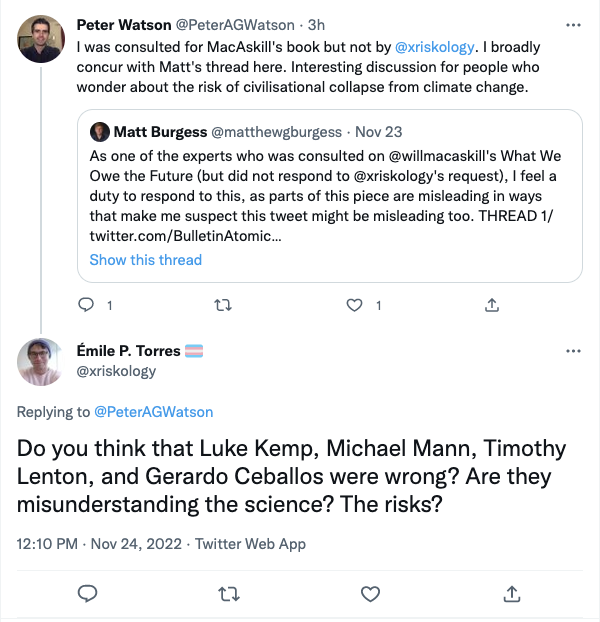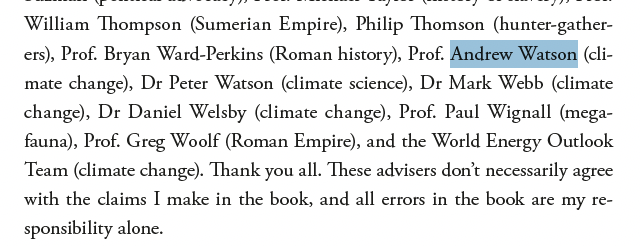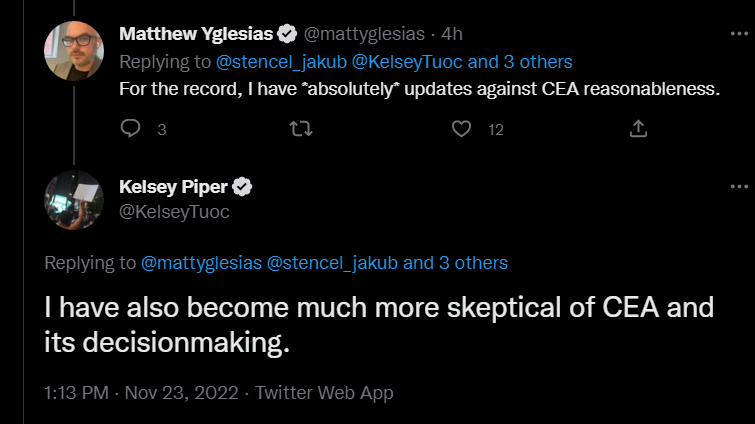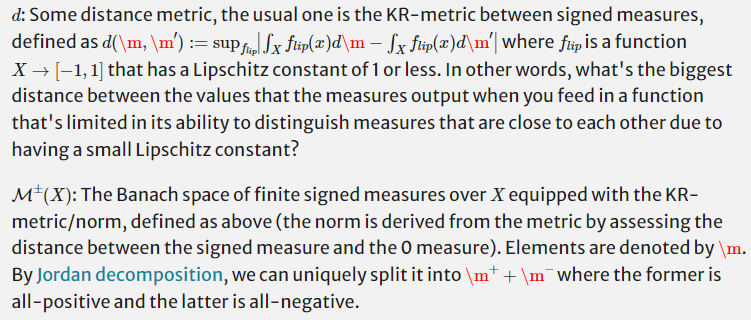Tldr: This is a letter I wrote to the Climate Contributing Editor of the Bulletin Atomic Scientists, Dawn Stover, about Emile Torres' latest piece criticising EA. In short:
- In advance of the publication of the article, Ms Stover reached out to us to check on what Torres calls their most "disturbing" claim viz. that Will MacAskill lied about getting advice from five climate experts.
- We showed them that this was false.
- The Bulletin published the claim anyway, and then tweeted it.
- In my opinion, this is outrageous, so I have asked them to issue a correction and an apology.
Update: The Bulletin has declined to correct the piece or issue an apology. They say that the editor's note provides 'balance' for the reader. They haven't explained how their false tweet remains acceptable. By these standards, media outlets don't have to correct false claims in articles, they just have to include editor's notes contradicting the false claims. There are apparently no constraints on what media outlets are permitted to tweet.
Dear Ms Stover,
I have long admired the work of the Bulletin of the Atomic Scientists. However, I am extremely disappointed by your publication of the latest piece by Emile Torres.
I knew long ago that Torres would publish a piece critical of What We Owe the Future, and on me following my report on climate change. However, I am surprised that the Bulletin has chosen to publish this particular piece in its current form. There are many things wrong with the piece, but the most important is that it accuses Will MacAskill and his research assistants of research misconduct. Specifically, Torres contends that five of the climate experts we listed in the acknowledgements for the book were not actually consulted.
Ms Stover: you contacted us about this claim in advance of the article’s publication, and we informed you that it was not true. Overall, we consulted around 106 experts in the research process for What We Owe The Future. Torres suggests that five experts were never consulted at all, but this is not true — as Will stated in his earlier email to you, four of those five experts were consulted. I am happy to provide evidence for this. The article would have readers think that we made up the citations out of thin air. One of them was contacted but didn’t have time to give feedback, and was incorrectly credited in the acknowledgements, which we will change in future editions: this was an honest mistake. The Bulletin also went on to tweet the false claim that multiple people hadn’t been consulted at all.
The acknowledgements are also clear that we are not claiming that those listed checked and agreed with every claim in the book. Immediately after the acknowledgements of subject-matter experts, Will writes: “These advisers don’t necessarily agree with the claims I make in the book, and all errors in the book are my responsibility alone.”
To accuse someone of research misconduct is a very serious allegation. After you check it and find out that it is false, it is extremely poor form to let the claim go out anyway and then to tweet it. The Bulletin should issue a correction to the article, and to the false claim they put out in a tweet.
I also have concerns about the nature of Torres’ background work for article — they seemingly sent every person that was acknowledged for the book a misleading email, telling them that we lied in the acknowledgements, and making some reviewers quite uncomfortable.
To reiterate, I am very disappointed by the journalistic standards demonstrated in this article. I will be publishing something separately about Torres’ (as usual) misrepresented substantive claims, but the most serious allegation of research misconduct needs to be retracted and we need an apology.
(Also, a more minor point: it's not true that I am Head of Applied Research at Founders Pledge. I left that role in 2019.)
John





(I'm a moderator, but I'm speaking personally here.)
Like you, I see "sociopath" as lossier than the others, but I think I care less about brevity (vs. precision) than you do.
Brevity is crucial in cases where the same thing is discussed repeatedly, but I think people are different enough that we lose a lot by rounding off to terms like "sociopath".
I also think it helps w/community legibility to share details on behavior. "Don't engage with X, they have a personality disorder" tells me nothing if I have no context. "Don't engage with X, they have bad intentions and lie frequently [insert links]" tells me something.
And if I know that X is a bad actor already, and I have context on their habitual lying, comments like "X is a binge drinker" still add nothing (and worsen the overall tone/quality of discourse).
I can imagine this being valuable sometimes, and I appreciate the general point. I also liked the LW example — seems like you were being a good moderator there! (It helps that at least one of the people you messaged was open about their condition.)
To add my own example: I read a lot of Freddie Deboer, and he's been very open about his struggles with bipolar disorder. If Freddie suddenly made a bunch of weird comments on the Forum, I might reach out to him the same way you did to your users.
*****
But I think watching someone this closely is only merited if there's an important reason to engage with them. This applies in the case of the LW users you mention (I assume you saw them as valuable contributors to the LW community). I also think it applies to someone like Donald Trump, who had so much power and influence that it made sense for psychologists to speculate about his condition. (Same goes for all U.S. presidents.)
I don't think Torres is a valuable contributor or a figure of towering influence. To the extent that we care about their behavior, it's about their arguments (and how others receive them). And the best way to address their arguments is by (a) presenting facts, and (b) cataloguing their long history of dishonesty.
*****
I also don't want to lose sight of the various negative things that come along with psychologizing, which trade off against brevity and predictive value: